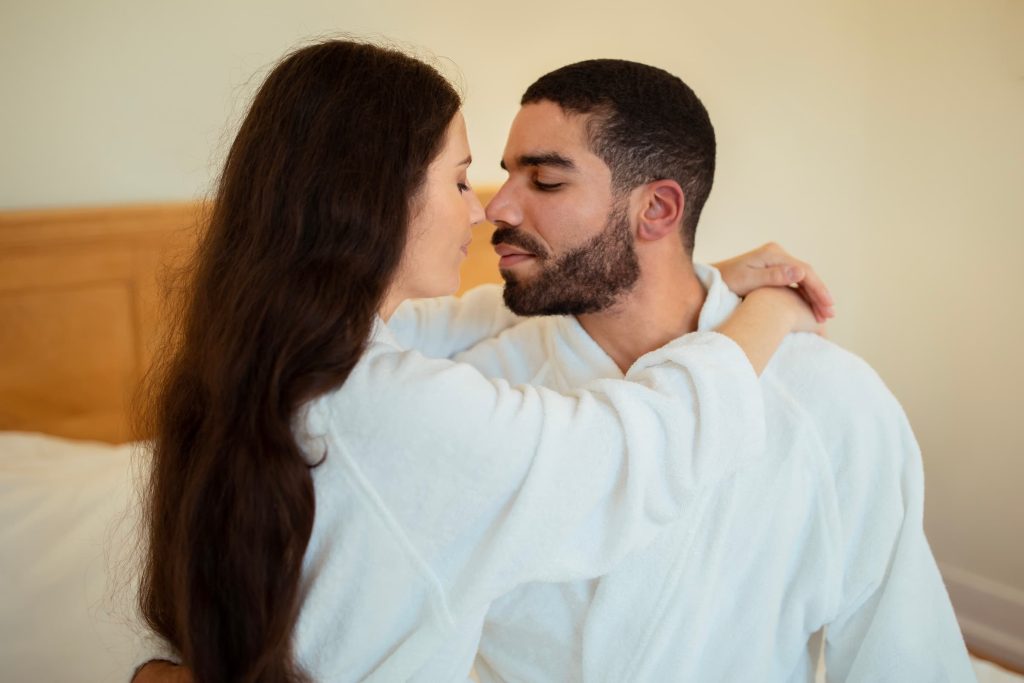The Pull of the Familiar
Have you ever looked back on your dating history and noticed that your partners seem strangely similar, even when you thought you were choosing differently? This repeating attraction is not accidental. Human beings are drawn to what feels familiar, even if that familiarity is unhealthy. Early experiences of love and care set the blueprint for what we later interpret as comfort. If affection once felt inconsistent, you may unconsciously seek out partners who are hot and cold. If you learned that love required effort and sacrifice, you might repeatedly choose people who demand more than they give. These patterns are powerful because they operate beneath conscious awareness, pulling you back into dynamics that echo your past, even when they no longer serve you.
Because repeating the same type of relationship can feel exhausting, many people look for short-term escapes rather than addressing the pattern itself. Some distract themselves with casual encounters, fast-moving flings, or the endless novelty of dating apps. Others may even turn to indulgent experiences like the best escort services to feel validated, admired, or temporarily close to someone. These options may provide relief from the frustration of repetition, but they don’t solve the deeper issue. Until you recognize and address why you are drawn to the same type over and over, the cycle will continue, no matter how different each new partner appears at first.

What Repetition Reveals About You
Attracting the same type repeatedly is often a reflection of unresolved wounds. If you consistently choose emotionally unavailable partners, it may reveal a fear of intimacy. On some level, you might crave closeness while also avoiding it because it feels unsafe. The attraction to distance is not random—it mirrors the push-pull dynamic you once experienced.
Another possibility is that you are trying to “win” a type of love you never fully received. If love once came through effort, you may unconsciously chase partners who are hard to please, believing that if you finally succeed, it will heal old wounds. The repetition is an attempt at resolution, though it rarely works the way we hope.
Self-worth plays a critical role as well. If you believe deep down that you are not worthy of stable, nurturing love, you may settle for relationships that confirm that belief. This doesn’t mean you consciously choose pain—it means your patterns keep steering you toward what aligns with your inner story about yourself.
Repetition can also be tied to comfort with intensity. If chaos or drama was a part of your early emotional environment, stability might feel foreign or even boring. As a result, you may find yourself more drawn to passionate highs and lows than to steady affection, even though the latter would actually be healthier.
Recognizing these insights does not mean blaming yourself. Rather, it is an invitation to see how your past continues to shape your present and to use that awareness as a stepping stone toward change.
Breaking the Cycle and Choosing Differently
The good news is that repeating the same type of attraction does not mean you are trapped forever. The first step is awareness. Start by reflecting on your past relationships and identifying common threads. Were your partners distant, controlling, or unreliable? Did the conflicts follow a similar pattern? Awareness turns what feels like fate into something you can influence.
The next step is challenging your attractions. When you feel drawn to someone who resembles past partners, pause and ask yourself why. Is it genuine compatibility, or is it the pull of familiarity? Attraction often feels automatic, but with mindfulness, you can interrupt the cycle and choose differently.
Building self-worth is essential in this process. The more you value yourself, the less likely you are to settle for partners who cannot meet your needs. Self-worth empowers you to set boundaries, walk away from unhealthy dynamics, and pursue relationships that reflect the respect and care you deserve.
Vulnerability also helps break the cycle. Old patterns often exist to protect us from hurt, but they also block intimacy. By practicing openness with people who show consistency and care, you retrain yourself to see stability as safe and desirable.
Finally, patience is key. Breaking patterns takes time, and it may feel uncomfortable to choose partners who don’t fit your “usual type.” But discomfort is often a sign of growth. Over time, the unfamiliar choice—the one rooted in health rather than repetition—becomes the foundation for lasting intimacy.
In the end, attracting the same type over and over is less about fate and more about unhealed patterns seeking resolution. While temporary distractions may ease the frustration, true change comes from reflection, self-worth, and the courage to choose differently. By breaking free from the pull of the familiar, you open the door to a kind of love that is not a repeat of the past but a reflection of your growth, healing, and readiness for something new.